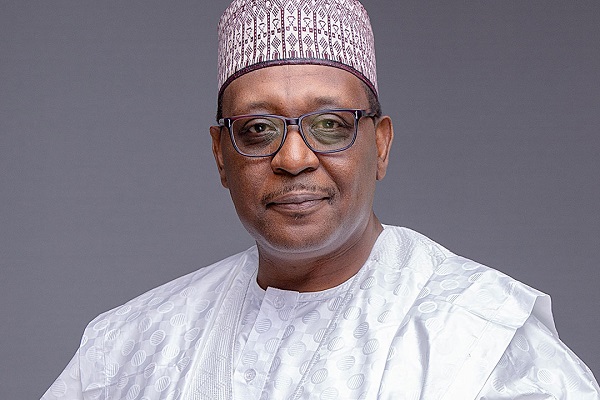
The Minister of Health and Social Welfare, Prof. Muhammad Pate has renewed the call for collective action against the scourge of malaria in the county.
Pate made the call at a high-level dialogue on accelerating malaria elimination in Nigeria on Friday in Abuja. The meeting, titled ‘Rethinking Malaria Elimination,’ was organised by the Federal Ministry of Health in collaboration with the National Malaria Elimination Programme (NMEP) to mobilise stakeholders for expediting malaria elimination efforts in Nigeria.
In Nigeria, malaria remains a significant public health problem. Despite decades of efforts and initiatives, the country still bears a high burden of the disease, with millions of cases and thousands of deaths annually. As the nation looks forward, a renewed call to action emerges.
Pate emphasised the need to reimagine malaria elimination efforts, leveraging evidence-based tools, robust data systems and innovative financing models. He believes that Nigeria can lead the charge towards a malaria-free Africa with collective commitment and divine grace.
The Abuja Declaration of 2000, a beacon of hope, outlined ambitious objectives to combat malaria, yet progress has been mixed. According to the World Health Organisation, Nigeria accounted for 25 per cent of the world’s malaria cases in 2018 and 24 per cent of malaria deaths. However, the 2022 Nigeria Malaria Report indicates a 55 per cent reduction in malaria death rates between 2000 and 2021, with a 26 per cent decrease in incidence during the same period.
To address this problem, the Nigerian National Malaria Strategic Plan (2021–2025) provides a roadmap for targeted interventions across the country’s diverse epidemiological zones. However, despite these efforts, morbidity and mortality continue to rise, with children in sub-Saharan Africa being the most affected.
Innovative interventions like artemisinin-based treatments, the affordable medicine facility for malaria and seasonal malaria chemo-prevention offer hope. Vector controls, such as ITN, IRS, LSM, chemoprevention, including SMC, IPTp, PMC, MDA, and vaccines like RTS, S R21, are some of the comprehensive approaches needed to achieve malaria elimination goals.
The minister said that innovative interventions like artemisinin-based treatments, the Affordable Medicine Facility for Malaria, and Seasonal Malaria Chemoprevention offer hope. The challenge, however, remains limited funding, increasing insecticide resistance and disruptions to essential services that hinder efforts.
President Bola Tinubu’s administration had floated the ‘Renewed Hope’ agenda, particularly with the Nigeria Health Sector Renewal Investment Initiative (NHSRII). This initiative, backed by key stakeholders, aims to revolutionise Nigeria’s health sector, with malaria eradication as a crucial component.
The Minister of State for Health, Dr. Tunji Alausa said that the mid-term review of the National Malaria Strategic Plan 2021–2025 conducted in 2023 similarly showed an unimpressive performance and a clear demonstration that continuing in the same business-as-usual mode may never give us the desired results. Therefore, this roundtable discussion, with the participation of experts across the globe and development partners, was crucial.
“We must review our past and current strategies and approaches, fine-tune some tools, and introduce new ones for a better outcome,” he said.
Collaboration with global partners, philanthropic organizations, and the private sector is crucial to achieving malaria elimination goals. According to president of Resilient Health Systems and faculty member at Johns Hopkins Bloomberg School of Public Health, Dr. Soji Adeyi, malaria was extraordinarily donor-dependent and its treatment needs to be supplemented by external funding as Nigeria’s financing grows.
Adeyi highlighted the importance of addressing the affordability and availability of full malaria treatment and diagnostics. He said that without this comprehensive approach, countries would not be able to achieve their malaria elimination goals.
Strategic adviser to the minister on Malaria Elimination in Nigeria, Prof. Olugbenga Mokuolu said that the essential mix for driving down malaria illness and death includes case management, vector controls (such as ITN, IRS, LSM), chemo-prevention (including SMC, IPTp, PMC, MDA) and vaccines (like RTS, S R21).
Eliminating malaria in Nigeria is not an easy task, but it is achievable with collective commitment and divine grace. Collaboration with global partners, philanthropic organisations and the private sector is crucial, but more must be done. The Nigerian government needs to increase its funding for malaria elimination programmes, while global partners need to provide more resources to support the country’s efforts.
Nigeria has made progress in combating malaria, but challenges persist. To achieve malaria elimination goals, the country needs to invest in comprehensive approaches, leverage evidence-based tools, robust data systems, and innovative financing models, and collaborate with global partners. By doing so, Nigeria can lead the charge towards a malaria-free Africa.

